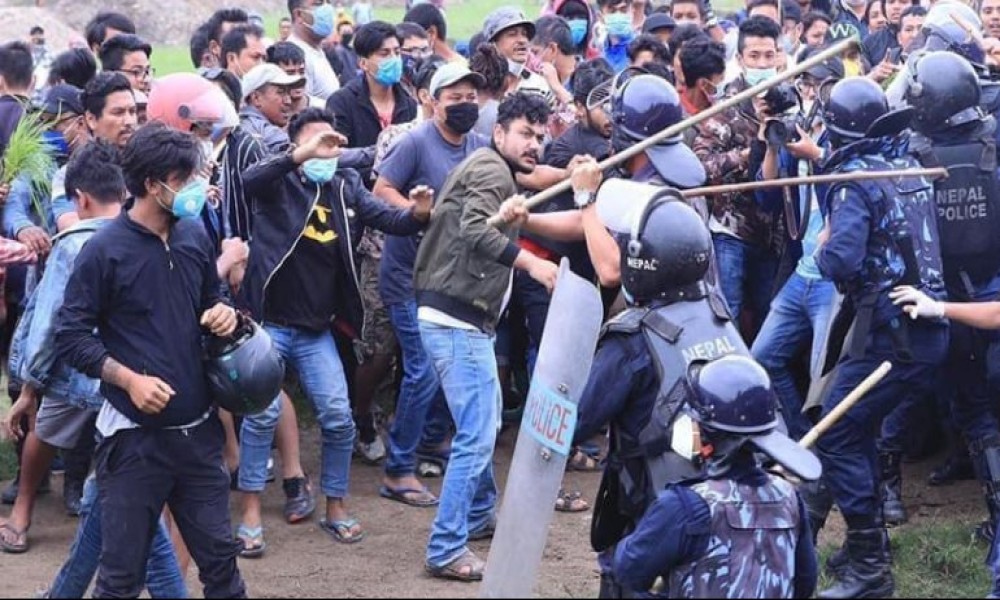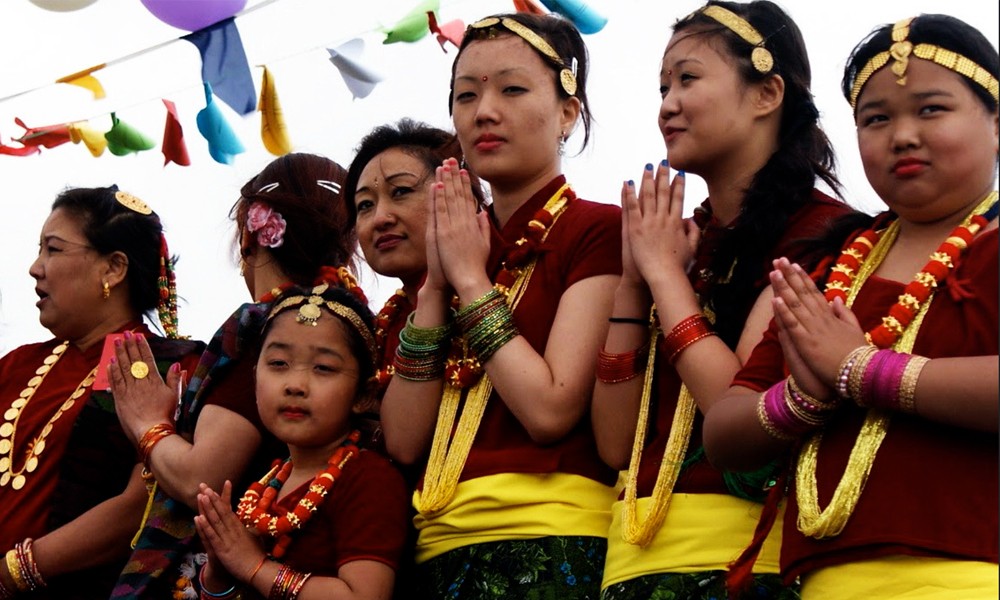The local farmers of Khokana on Saturday flocked to their ancestral farmland to plant paddy. It was a symbolic protest against development projects planned by the government, including Kathmandu-Terai fast track, which threatens to drive local indigenous Newar people off their native land. But police soon reached there, and tried to chase the farmers away. As the farmers began to protest, police threw tear gas shells to disperse the agitated crowd. The farmers stood their ground, which led to a clash between them and police.
Khokana is known as a live museum of rich indigenous culture and heritage preserved by local Newar people. But the State is trying to snatch land from them to build a highway that links Kathmandu with the country's southern plains. The proposed alignment of this highway cuts through the middle of Khokana. The proposed outer Ring Road also goes through Khokana. A 132 KV Matatirtha-Bhaktapur transmission line also stretches through this old Newar settlement in Lalitpur district. Indigenous people of Khokana say that their culture is closely tied to their native land, and that their displacement form ancestral land will destroy their culture. So, they have been fighting not just for their land but also for their history and culture. They have staged demonstrations in various places, including Maitighar.
The Khokana case shows difference between what the State perceives as development and the kind of development sought by local indigenous communities. It also raises a question: how can the State just take away the home of indigenous people without their consent?
A few days ago, a video was widely shared on social media. In this short clip, one of the young protesters is seen and heard demanding a Newar police officer for dialogue with local Newar people. He asked police to send an officer who can speak and understand Newari language. This video illustrates why people of Khokana feel excluded from development plans and process. The Khokana case shows difference between what the State perceives as development and the kind of development sought by local indigenous communities. It also raises a question: how can the State just take away the home of indigenous people without their consent?
Local indigenous people have been fighting to save their land and culture from the kind of development that the State wants in many places, not just in Khokana. Latest examples are Kalanki-Nagdhunga and Chabahil-Sankhu roads, which took a long time to be completed because of stiff opposition and obstruction by local people left out of the development process. Land acquisition has been the most difficult aspect of any development project. Local people always demand higher compensation for the land acquired by the government. But Khokana is a different story. Indigenous people of Khokana are not demanding higher compensation -- they are refusing to sell their land. They do not want to leave land that is not just their home but also an integral part of their culture.
Indigenous people of Khokana are not demanding higher compensation -- they are refusing to sell their land. They do not want to leave land that is not just their home but also an integral part of their culture.
Why did the government not consult the Khokana folks before drawing the alignment of the Kathamndu-Terai fast-track? Why were their concerns not addressed? What is happening in Khokana now is the result of marginalization of indigenous people. They lack access to the State. So their voices, concerns and grievances have been left unaddressed. In a diverse country like Nepal, it is the State's responsibility to preserve all cultures and traditions. Development plans that threaten indigenous culture should be abandoned, or modified. It is high time the Stated initiated meaningful dialogue with people of Khokana. Use of force in silencing the Khokana folks will not solve the problem. It will simply fuel the fire.
(This is an unofficial translation of Editorial by Naya Patrika daily on 5 July)









